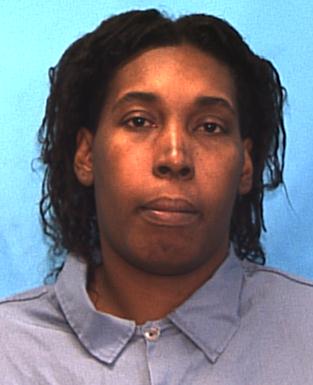
On Oct. 1, Latandra Ellington was found dead inside the Lowell Correction Institution in Ocala, Fla., apparently from repeated blows to her stomach. About a week and a half before, the 36-year-old inmate had written a letter to her aunt, saying she was concerned for her safety in prison and claimed that an officer named “Sgt. Q” was threatening to kill her.
According to attorneys representing Ellington’s family, an independent autopsy shows blunt force trauma and hemorrhaging to her body from what appeared to be punches or kicks. The attorneys, along with several organizations, including the American Civil Liberties Union and Amnesty International, are calling for a federal investigation into her death.
The Ellington case is one of several suspicious deaths in state prisons that have made headlines in Florida, including a deadly incident in 2010 involving Randall Jordan-Aparo, who reportedly died while being gassed in his cell, and Darren Rainey, who died in 2012 after being forced to take a scalding hot shower that caused his skin to separate from his body.
Ellington’s death is the third fatality in custody at Lowell this year. Two others at the prison are under review by the Florida Department of Law Enforcement.
While the inmate mortality rate in Florida and across the country has remained relatively steady over the last decade, Florida outpaces most states in terms of mortality rate per 100,000 inmates, according to the Bureau of Justice Statistics and the Florida Department of Corrections. In 2001, 182 prisoners died in Florida compared with 297 in 2011, but the population also grew at a similar rate over that same time period. The mortality rate per 100,000 prisoners slightly increased from 253 in 2001 to 294 in 2011.
Part of that may be due to the rapidly aging prison population in Florida, which mirrors the state’s population generally. From 2001 to 2008, the number of Florida inmates who were 55 and older increased by 161%, says Bill Bales, a criminology professor at Florida State University. And the number of federal and state prisoners in the U.S. who were 55 and older increased 94% in the same time period, according to Pew Research.
Overall and nationwide, the largest share of prisoner deaths—almost 90%—are due to illness. But the share of state prisoner deaths due to homicide—which includes homicide committed by other inmates, prison staff or those resulting from assaults prior to incarceration—have increased from 1.4% in 2001 to 2.1% in 2011 around the country, according to BJS.
This year in Florida, there have been three homicides and one suicide in state prisons. Investigations into 99 other deaths are currently pending.
Dan Mears, a criminal justice professor at the University of Florida, says prisons with increases in suspicious inmate deaths often have problems that start at the top and work their way down. Florida’s Department of Corrections, for example, has gone through four leadership changes in the last five years.
“At the end of the day, when you’re asking why some prisons have higher rates of suicide or higher rates of suspicious deaths and why they increase over time, it’s often because they’re being poorly administered—and oftentimes they’ve hired new officers who aren’t as highly trained,” Mears says. “That could potentially fuel those deaths.”
Mears adds that badly run prisons often have inadequate training for officers and don’t properly teach them how to handle conflicts with inmates, which can often lead to fatal consequences.
In September, the Florida DOC fired dozens of employees, many of whom have been involved in deaths that are currently under investigation, including that of Jordan-Aparo, who was gassed in his cell. Their dismissal letters said they were fired for participating “in a force incident that resulted in the death of an inmate.”
A Lowell prison official, Sgt. Patrick Quercioli, is now being investigated in Ellington’s death, according to the Miami Herald, and has been arrested twice while tallying 22 use-of-force filings while working for the DOC.
“Our department should be held to the highest standards, and I have zero tolerance for anything,” DOC Secretary Michael Crews said in a statement.
As the state reviews the case, attorneys for Ellington’s family, who also represent the family of Trayvon Martin, the Florida teen shot and killed by George Zimmerman in February 2012, are calling for the Department of Justice to investigate.
“She was not sentenced to the death sentence,” said civil rights attorney Daryl Parks, according to the Herald. “The Department of Corrections certainly owed her far greater protection.”
More Must-Reads from TIME
- Donald Trump Is TIME's 2024 Person of the Year
- Why We Chose Trump as Person of the Year
- Is Intermittent Fasting Good or Bad for You?
- The 100 Must-Read Books of 2024
- The 20 Best Christmas TV Episodes
- Column: If Optimism Feels Ridiculous Now, Try Hope
- The Future of Climate Action Is Trade Policy
- Merle Bombardieri Is Helping People Make the Baby Decision
Contact us at letters@time.com